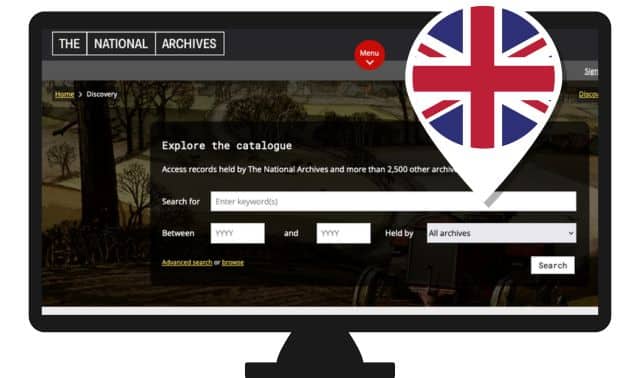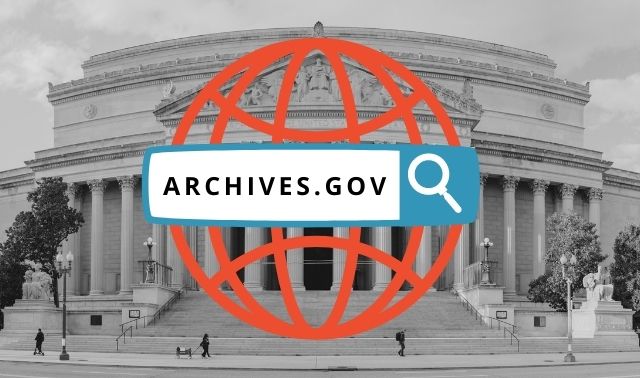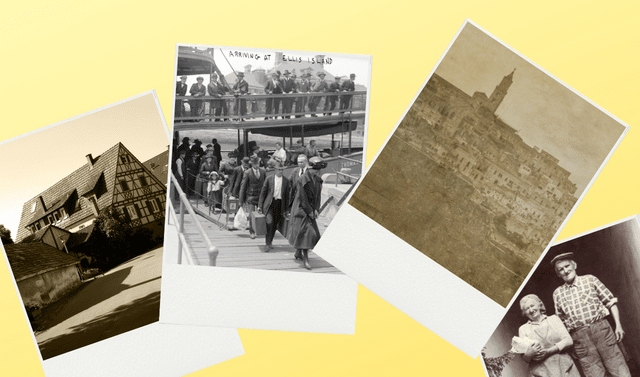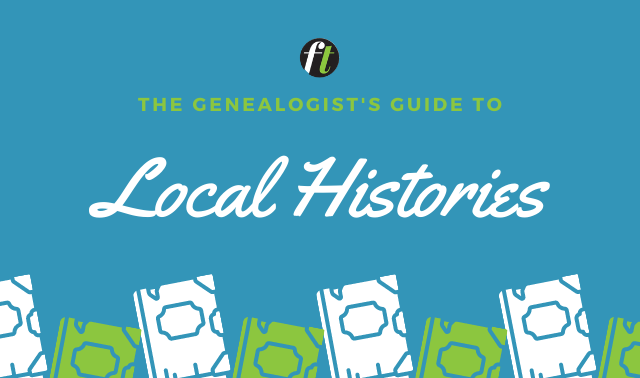Sign up for the Family Tree Newsletter! Plus, you’ll receive our 10 Essential Genealogy Research Forms PDF as a special thank you.
Get Your Free Genealogy Forms
"*" indicates required fields

Unpublished manuscripts are terrific sources of family history—think old letters, diaries, Bibles and more. Many are in archives and libraries, and with online catalogs, you can search for them just as you would a book.
Instead of searching a bunch of online catalogs, though, save time by using archival portals, also called union catalogs because they list the holdings of multiple organizations in one database. After you find a promising manuscript, the next step is figuring out how to get access.
Many manuscripts have yet to be microfilmed or digitized, but sometimes search results will link to an image of the record. If not, ask your librarian to request a name lookup or a photocopy through interlibrary loan.
ADVERTISEMENT
Start your hunt by using these key online archival portals to check for manuscripts in Canada, Great Britain and the United States.
Canada
Archives Canada This catalog covers collections of documents, photographs and maps in more than 800 archives located across Canada. Looking for records on my Peters ancestors, I ran an Advanced Search for Any Keyword=Peters family and clicked the box for Province/Territory=NB (New Brunswick).
One of the seven matches pertains to my family, and I can follow a link to the Provincial Archives of New Brunswick website to find out how I can access the manuscript.
ADVERTISEMENT
Canadiana has two parts: Early Canadiana Online, which has more than 3 million digitized pages (mostly from books and journals), and the CanadianaDiscovery Portal, which includes digitized books, journals, newspapers, government documents, photographs and maps. Full access to Canadiana costs $100 a year, but you can sign up for a 15-day free trial.
Great Britain
Discovery, the British national archives’ catalog, describes 20 million court records, military records and wills created by the central government in England and Wales. Using the Advanced Search form, I searched for the phrase “William Pennington” and the word Devonshire (the county where he lived). The first match is a record of William’s discharge from the 66th Foot Regiment in 1785. There’s even a link to Findmypast, where I can download the record for a fee.
Discovery also includes the Access to Archives catalog which includes 9.45 million items at more than 400 archives, libraries and museums throughout England and Wales. Many catalog records include names of people and places. I ran an Advanced search for the phrase Samuel Jones and the word Llanigon (the parish where he lived in Breconshire, Wales). That produced a reference to Samuel’s will from 1806 and a link to the National Library of Wales site, where I can download the will for free.
National Register of Archives, also included in Discovery, is a catalog of British manuscripts and records at archives in the United Kingdom and overseas. A search on the place Llanigon—the parish where my ancestors lived in Breconshire, Wales—turns up the National Library of Wales’ Baptist church records of baptisms and burials from 1738 to 1920. I’d have to visit the library to view the records, or hire someone to search them for me.
The Church of Jesus Christ of Latter-day Saints’ FamilySearch Library has many British church records on microfilm, but not the Baptist church records for Llanigon. If the library doesn’t have the British church records you need, try the National Register of Archives catalog.
United States
ArchiveGrid is a free catalog of manuscripts, including personal papers and family histories, at archives in the United States, United Kingdom, Germany, Australia and other countries. About 90 percent of the 500,000 records come from WorldCat.
A search on the name “Moses Crume” (in quotation marks so it searches on the exact phrase) turns up a manuscript at Indiana University. Clicking on Finding Aid links to an inventory that shows a document from an 1819 trial that has Moses Crume’s signature. There’s also an e-mail link to request a copy of the record.
Everything in the online version of National Union Catalog of Manuscript Collections (NUCMC; pronounced “nuck-muck”) is also on WorldCat, which is easier to search. But it’s still worthwhile to search NUCMC: Its narrower scope focuses on materials useful to genealogists, and it sometimes identifies the holding archive for items lacking that information in WorldCat.
When searching on a name or other phrase in NUCMC, use the Advanced Search form, enter the last name first (Smith, John) and select Subject/Note/Title and Phrase from the drop-down menus. The free online version of NUCMC includes only catalog entries made since 1986. Check your public library to see if it subscribes to Archive Finder, a subscription database that has the entire collection of NUCMC from 1959 to the present.
Online Archive of California has more than 20,000 guides to collections at 200-plus libraries, archives, museums and historical societies in California, as well as 10 University of California campuses. You can view 220,000 digital images and documents on the site, and learn how to access the others cataloged in the database. My grandfather worked on the construction of Shasta Dam in northern California during the late 1930s. My first few results of a search on the term Shasta Dam are photo collections of the dam’s construction.
WorldCat lists 1.5 billion items at 10,000 libraries worldwide. It covers books as well as manuscripts, photographs, music, videos and audiobooks. To find manuscripts, go to Advanced Search and select Archival Material. Use these strategies to find specific record types:
- Family papers and family Bibles: Do a Keyword search on a surname plus the word family (“McMorris family”), with quotation marks to search on the phrase. If it’s a common name, add another keyword, such as the name of a city, state or country. When searching on states, try the full name (Connecticut) and abbreviations (Conn. or Ct.). n Papers about a specific person: Do a Keyword search on a name with quotation marks to search on the phrase—for example, “Isaac Crowe.” That search produces a match on the Isaac Crowe papers, 1843-1875, at the Minnesota Historical Society. These business records involve several of my relatives during the late 19th century. Going through all 13 boxes of papers will take some time!
- Local histories: Do a Keyword search on the name of an ancestral town or county plus the word history (Otsego history). Use quotation marks around the place if it has more than one word. A search on “South Worcester” history turns up the Isaac Crowe papers, plus typewritten town histories that tell about my ancestors.
- Town and county records: Run a Keyword search on the name of a town or county plus a type of record or the word genealogy. If the name of the town or county is common, add the state. For example, a search on “New Holland” Pennsylvania church produces three matches, including a list of members of Trinity Lutheran Church in 1802. WorldCat also covers books and other resources, so try these searches without limiting the format to Archival Material to see what you find.
A version of this article appeared in the December 2012 issue of Family Tree Magazine
Related Reads
ADVERTISEMENT










